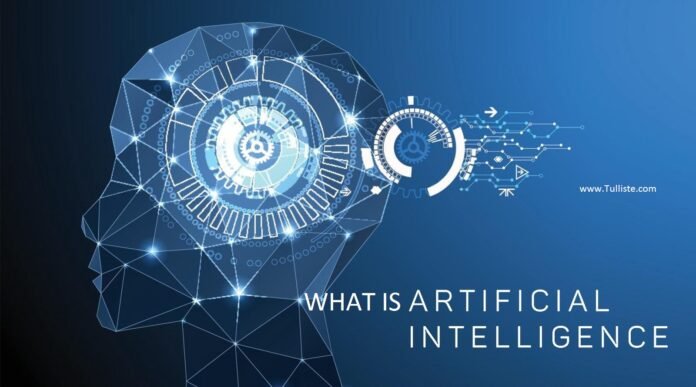Introduction to Artificial Intelligence
Welcome to the fascinating world of artificial intelligence! Imagine a future where machines can learn, reason, and even perceive the world around them. This cutting-edge technology is revolutionizing industries, changing how we live and work. Let’s delve into the realm of AI to unravel its history, types, advancements, applications, ethical concerns, and what lies ahead in this incredible journey of innovation.
The History and Evolution of AI
The history of artificial intelligence dates back to the 1950s when the term was first coined. Early AI focused on symbolic reasoning and problem-solving tasks, with researchers optimistic about creating machines that could mimic human intelligence.
As technology advanced, so did AI capabilities. The development of neural networks in the 1980s marked a significant milestone in AI evolution, allowing for more complex learning algorithms and pattern recognition.
In recent years, machine learning and deep learning have propelled AI to new heights. These technologies enable computers to learn from data and improve their performance over time without being explicitly programmed.
AI has found its way into various industries, revolutionizing how businesses operate and improving efficiency across sectors like healthcare, finance, and transportation.
Despite its rapid progression, ethical concerns surrounding AI continue to be a topic of debate. Issues such as bias in algorithms, privacy violations, and job displacement are important considerations as we navigate the evolving landscape of artificial intelligence.
Types of Artificial Intelligence
When it comes to artificial intelligence, there are different types that showcase its diverse applications. One type is Narrow AI, which focuses on performing specific tasks like facial recognition or language translation with high accuracy.
Another type is General AI, also known as AGI or Strong AI, which aims to understand and perform any intellectual task that a human can do. This level of AI is still theoretical and under development.
Machine Learning is a crucial subset of AI where algorithms learn from data without being explicitly programmed. It enables systems to improve their performance over time through experience.
Deep Learning is another subset of Machine Learning that involves neural networks to model and process complex patterns in large amounts of data efficiently.
Reinforcement Learning is an approach where agents learn to make decisions by interacting with an environment and receiving rewards for good actions. It has been pivotal in advancements such as self-driving cars and game-playing algorithms.
Advancements and Applications of AI
AI has made remarkable advancements in various industries, revolutionizing the way tasks are performed. In healthcare, AI is being used to analyze medical data and assist in diagnosing diseases with higher accuracy than ever before.
Moreover, in the finance sector, AI algorithms help detect fraudulent activities and make faster trading decisions. Retail companies utilize AI for personalized shopping experiences through recommendation engines based on customer behavior analysis.
The automotive industry benefits from AI by integrating self-driving technology into vehicles, enhancing road safety and reducing accidents. Additionally, AI-powered chatbots are increasingly being deployed in customer service to provide instant support and streamline communication processes.
The applications of AI continue to expand across different sectors, showcasing its potential to transform businesses and improve efficiency.
Ethical Considerations with AI
As artificial intelligence continues to advance rapidly, ethical considerations have become a crucial topic of discussion. One major concern is the potential for AI algorithms to perpetuate bias and discrimination.
Ensuring that AI systems are developed and used ethically involves addressing issues such as data privacy, transparency in decision-making processes, and accountability for the outcomes produced by AI technology.
There is also ongoing debate about the impact of AI on jobs and the economy, with concerns about automation leading to widespread job displacement. Balancing technological progress with social responsibility is essential in navigating these complex ethical dilemmas associated with AI.
Furthermore, questions arise regarding the use of autonomous weapons powered by AI and their implications for international security and warfare. It’s imperative to establish clear guidelines and regulations around the development and deployment of such technologies to prevent potential harm.
As we delve deeper into the realm of artificial intelligence, it becomes increasingly important to prioritize ethical considerations to ensure that this powerful technology benefits society as a whole.
The Future of Artificial Intelligence
As we look towards the future of artificial intelligence, the possibilities seem endless. With ongoing advancements in machine learning and deep learning algorithms, AI is set to revolutionize various industries. From healthcare to finance, AI-driven solutions are streamlining processes and improving efficiency.
In the coming years, we can expect to see even more personalized experiences thanks to AI-powered technologies. Virtual assistants will become even more intuitive and capable of understanding human emotions. The integration of AI into everyday devices will further enhance convenience and connectivity.
Additionally, as AI continues to evolve, there will be a growing emphasis on ethical considerations surrounding its use. Striking a balance between innovation and responsibility will be crucial in shaping a sustainable future for artificial intelligence.
The future of artificial intelligence holds immense potential for transforming our world in ways we have yet to imagine fully.
Conclusion
Artificial intelligence has undoubtedly come a long way since its inception. With a rich history, diverse types, and limitless potential applications, AI continues to revolutionize industries and drive innovation across the globe. As advancements in technology propel the field forward, it is crucial to address ethical considerations surrounding AI implementation.
Looking ahead, the future of artificial intelligence holds boundless opportunities for growth and development. With ongoing research and breakthroughs in machine learning and deep learning algorithms, we can expect even greater strides in automation, personalization, healthcare, transportation, and more.
In this fast-paced digital era, artificial intelligence stands at the forefront of technological progress. Embracing its capabilities while remaining mindful of ethical implications will be key as we navigate towards an increasingly intelligent future powered by AI.


